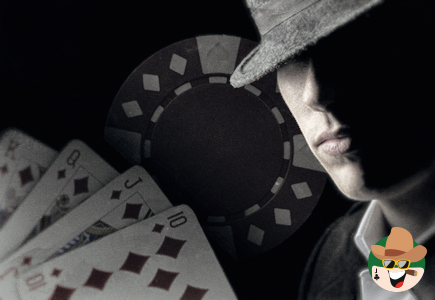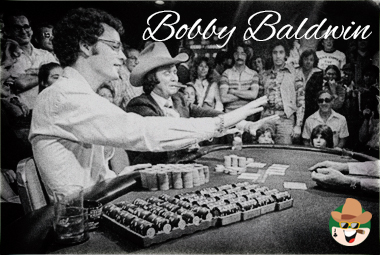
The best poker players realize there is a huge difference between limit and no limit poker. It is rare to find a person who plays both games equally well.
The great players know the value of bluffing and picking up small pots, especially when the cards aren't coming to you. And it's a fact that bluffing and picking up those small pots is just a lot harder in limit poker because of the large number of calling stations out there.
Top players like Bobby Baldwin and Doyle Brunson agree that the one similarity that exists in limit and no limit players is an aggressive style. Anyone who is not aggressive won't be around the poker world for long, especially in the higher stakes games. You need to play a pot strongly if you hope to compete. That, in a nutshell, is the heart of power poker.
The big no limit pots are usually restricted to two and possibly three players. However, big limit pots can involve anywhere from five to eight players since a lot more people get involved in limit games.

To be effective, a limit player needs to learn to read hands. Your winning strategy should involve starting out with an above average hand. This means playing big cards most of the time.
You will show down a lot more hands in limit than in no limit games. Those small suited connectors that often work well in no limit are not nearly as valuable in limit poker.. While you will still play them in the right situations, they won't always work as well in a limit competition.
The three weapons I take to the table are patience, self discipline, and observation. I watch what the other players are doing, especially when I am not in a hand. Lack of patience is a killer and so is a lack of self discipline. They can destroy otherwise sound players nearly as quickly as a bolt of lightning.
Don't let past hands affect your play or judgment. You can't change the past. You need to play each hand as though you had won the previous pot.
If a new player joins the game, observe him carefully to get a line on his play. Especially watch for tells. He may have them and if so, that can be good news to your bankroll.
Keep a good estimate on the number of hands your opponents play. Are they callers, raisers or double raisers? Are they sophisticated bluffers who need to be watched? Is the player weak or strong? Does a bad beat put him on tilt? Is a player predictable or is he capable of changing gears?
If you find yourself tired and you start deteriorating mentally or physically, it's time to leave the game. Don't try to fight a bad streak. It tends to destroy your discipline. Personal problems have no place in a poker game.
If you stop enjoying the game, why continue? Take a break. You probably need it.
As long as easy players remain in the game, you should stay. When they are replaced by tougher players, find something else to do.
If you enjoy slow-playing big pairs like aces or kings, only do it one hand out of 10. Play those suited connectors strong -- A-J, K-J, Q-J or J-10.
Mix up your play and sometimes raise with A-Q or K-Q not suited. Always raise with pocket queens and remember that A suited with a small card is a vastly over-rated hand.
When there are a lot of players in the pot, play suited connectors and small pairs regardless of your position. If you feel a player is raising with big cards, try re-raising with 8-7 suited or a similar hand. Just remember that if the game is loose, you will probably have to show down a lot of hands. Be ready and have the goods. You'll need them to win.
Author: Geno Lawrenzi Jr.
(Geno Lawrenzi Jr. is an international journalist, magazine author and ghostwriter and poker player who lives in Phoenx, AZ. He has published 2,000 articles in 50 magazines and 125 newspapers. If you want to share a gambling story or book idea with him, send an email to glawrenzi@gmail.com ).





